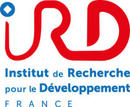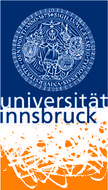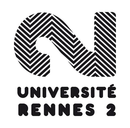European Partners
Cirad has a longstanding history of more than 25 years with Brazil, in particular in the Amazon region, through two main institutional partnership platforms, namely the DP-Amazon (“Agricultures, forests and cattle ranching: towards the sustainable development of Amazonian territories”) shared with EMBRAPA and UFPA, and the PP-AL (“Public policies and rural development in Latin America”), shared with UnB in association with other partners across Brazil. CIRAD participated in numerous projects in the Amazon, with focus on sustainable use of resources and developed a renowned expertise on the participative methodologies to involve civil society in the research process.In particular, Cirad staff brings a strong expertise in relation to 1/ observatories, companion modeling and scenarios and social learning, 2/ biodiversity monitoring in particular linked to forest carbon cycles, 3/ the comprehension of farmers’ practices and strategies, 4/ the analysis of governance arrangements and policy processes.
The French National Center of Scientific Research, CNRS is involved in the Hydrosciences Montpellier, GET Toulouse with the coordinator IRD and LETG associated with the university of Rennes (UR2). This associated staff brings expertise on several aspects of the project, in particular remote sensing applied to continental water monitoring and modeling. The team also counts with expertise on biogeochemistry and geochemistry applied in ODYSSEA, to carbon cycle in floodplains and pathogen distributions in water.
Since its creation in 2005, Geomatys has enjoyed the benefits of its Innovative Youth Enterprise status. The company began its activity based on the expertise of its two founders. It has experienced constant growth since its creation, and is today a dynamic and innovative actor in the geospatial industry. Geomatys implements all the international standards developed by the OGC and ISO when developing spatial data infrastructures and Portal or Geoportal projects. They combine editing and solution integrator activities in JAVA/JEE. In ODYSSEA they will participate to the set-up of the virtual collaborative platform and will train the researchers and identified end-users to its use in relation with activities in the WP5.
The Instituto Superior de Agronomia (ISA) promotes interdisciplinary research of relevance to tropical countries, and seeks to increase the scientific and technical capacity of developing countries in order to contribute to the pursuit of the Millennium Development Goals with special emphasis on CPLP countries. ISA has an essential contribution to the establishment and development of actions with international entities. This responsibility is reinforced by the connections with international consortia such as ECART, European Consortium for Agricultural Research in the Tropics and CGIAR, Consultative Group for the International Agricultural Research. ISA participated, in association with IRD, to the GMES & Africa initiative that aimed to set-up an overall framework in Africa for Earth Observation (EO) applications through a long term partnership between African and European stakeholders.
The IRD partnership with Brazilian institutions has been lasting for over 50 years. In relation with ODYSSEA themes and partnership, several institutional cooperation tools have enabled to reinforce the partnership with UEA and UnB. In 2008, a young research team was created at UEA to strengthen the use of radar altimetry satellite for hydrology in the Amazon which led to the creation of the RHASA (Hydrological resource and radar altimetry satellite in the Amazon) laboratory at UEA in 2011. In 2009, the LMI OCE ‘Observatory of Environmental Changes’ was created to consolidate 20 years of partnership with UnB. The associated staff brings expertise on several aspects of the projects, in particular remote sensing applied to; 1/ continental water monitoring and modeling, 2/ to the production of spatially distributed indicators partly based on remote sensed products useful for resource monitoring and environment & health issues an their integration in interoperable database, 3/ forest mapping and biodiversity. The team also counts with expertise on biogeochemistry and geochemistry applied to carbon cycle in floodplains and pathogen distributions in water.
The Lancaster Environment Centre (LEC) has a longstanding history with Brazil, including over a decade of research partnership with institutions in Belem including Embrapa, the Goeldi Museu, and the Federal University of Para (UFPA), and Santarem (UFOPA). LEC is an interdisciplinary centre with a focus on social and environmental issues including environmental change, biodiversity and sustainable development. LU has worked with UFAM and the FIOCRUZ on developing FOODSECA, a UK-and Brazil- funded research initiative on extreme climatic events and food security. FOODSECA is also the basis for network –building funding from the Newton (UK) Fund (2015), with co-financing from the research foundation of Amazonas (FAPEAM). LU is the UK coordinating institution of ECOFOR, a R$10 million NERC-FAPESP research programme examining biodiversity and ecosystem services in human modified tropical forests.
Lisode is a cooperative society (SCOP) providing consultancy services in public participation and change management. Combining this expertise with research activities, it is located at the academic and civil and private management interface. Its domain of expertise lies in accompanying and supporting to coordination and evaluation of participatory decision-making projects in areas such as territorial development, urban planning, natural resources management and organizational changes. They will participate, in association with Ambiente Social to the WP2 activities, in particular through training sessions targeted to stakeholders and managers.
The Stockholm Environment Institute (SEI) has been recognized as the second most influential environmental think tank in the world for the last two years and has been involved in work connecting science and policy in Latin America for over two decades. SEI is one of the coordinating institutions for the Sustainable Amazon Network (RAS), a grouping of nearly 100 researchers working in partnership with government, civil society and private sector actors to support improvements to land-use sustainability in the eastern Amazon. SEI is in the process of establishing a formal partnership with Brazil´s Ministry of Environment (MMA) to foster long-term collaborative work in the area of sustainable consumption and production, deforestation and land-use policy, and the water-energy nexus – each of which are underpinned by a new Initiative of SEI´s global strategy for the 2015-2019 period.
The department of Geography of the University of Innsbruck is considered to be Austria’s one of most important research centres on Latin America in with a focus of research on the one hand, and political ecology, man-environment relations in fragile ecosystems, vulnerability and sustainability on the other. The UIBK staff is involved in projects with the ODYSSEA Brazilian partners and approximately 10 scientists (lecturers, post-doctoral scientists and PhD students) will be actively involved in the project, in particular in WP5 and WP4. The research group established close relations to the UNB, the USP and the UFPA. Martin Coy participates in several research initiatives and networks on Megacity issues, he is member of the Steering Committee of the Megacities Task Force of the International Geographical Union and he is member of the Scientific Implementation Team concerning the Megacity issue for the International Year of Planet Earth. Furthermore, he is a member of the International Advisory Group (IAG) of the G7 Pilot Programme to Conserve the Brazilian Rainforest (PPG7).
The University of Guyane UG is envolved in the ESPACE-DEV Montpellier with IRD. This associated staff brings expertise on several aspects of the project, in particular in situ sensor development to support remote sensing applied to continental water monitoring and the production of spatially distributed indicators.
The UM is involved in the ESPACE-DEV Montpellier with IRD. This associated staff brings expertise on several aspects of the project, in particular remote sensing applied to the production of spatially distributed indicators partly based on remote sensed products useful for resource monitoring and environment & health issues.
The COSTEL laboratory from the University of Rennes has developed a partnership with Brazil for 20 years, with the support of CAPES-COFECUB and of the SANTOS-DUMONT network which funded researchers and PhD students’ exchanges between the two institutions as well as PhD cosupervisions. The laboratory has hosted for long stays from 3 months to 2 years colleagues from the Universities of Sao Paulo, Londrina, Cuiaba, Maringa and Curitiba. Several members of COSTEL have performed missions of teaching and supervision of research, participation in doctoral theses. They developed researches on environmental issues and more specifically on the use of remote sensing to map landscape units, the dynamics of agricultural colonization in the frontier region (including expansion of soybeans and livestock), forest biomass and rainfall estimation and study the deforestation influence on regional and local climate. Vincent Dubreuil is the PI of the CAPESCOFECUB “Public Policy and Impacts of Climate Change at Local & Regional scale on fragile areas‘ with USP.
The UPS is involved in the LEGOS and GET Toulouse with IRD. This particular team counts with expertise on biogeochemistry and geochemistry applied to carbon cycle in floodplains and remote sensing applied to hydrology.









